
The internet accounts for 2% of the world’s greenhouse gas emissions, the same as the global airline industry. Every time you Google a half-thought, play a silly cat video, or read a helpful blog (hi there), energy is used. But before you burn your router and boycott the internet, I’d ask you to finish this article first.
With COP26 approaching and climate change growing as a hot topic, people are hunting for ways to educate their mind, eliminate their waste, and engage in the conversation on the quest to go green – all on the internet! Maybe the world wide web isn’t so bad after all.
Here at Similarweb, we analyzed key data points to see exactly how the climate change conversation is heating up online.
Our internet environmental search data depicts:
We’ve also uncovered:
Internet users more interested than ever in climate change
Climate change has officially surpassed trend status as internet users express more interest than ever in the global phenomenon, with climate-change-charged keywords peaking at 145.5K searches in April and web traffic to environmental sites escalating at an astonishing rate. Visits to websites classified as ‘environmental education’ have ballooned by 89% this year alone.
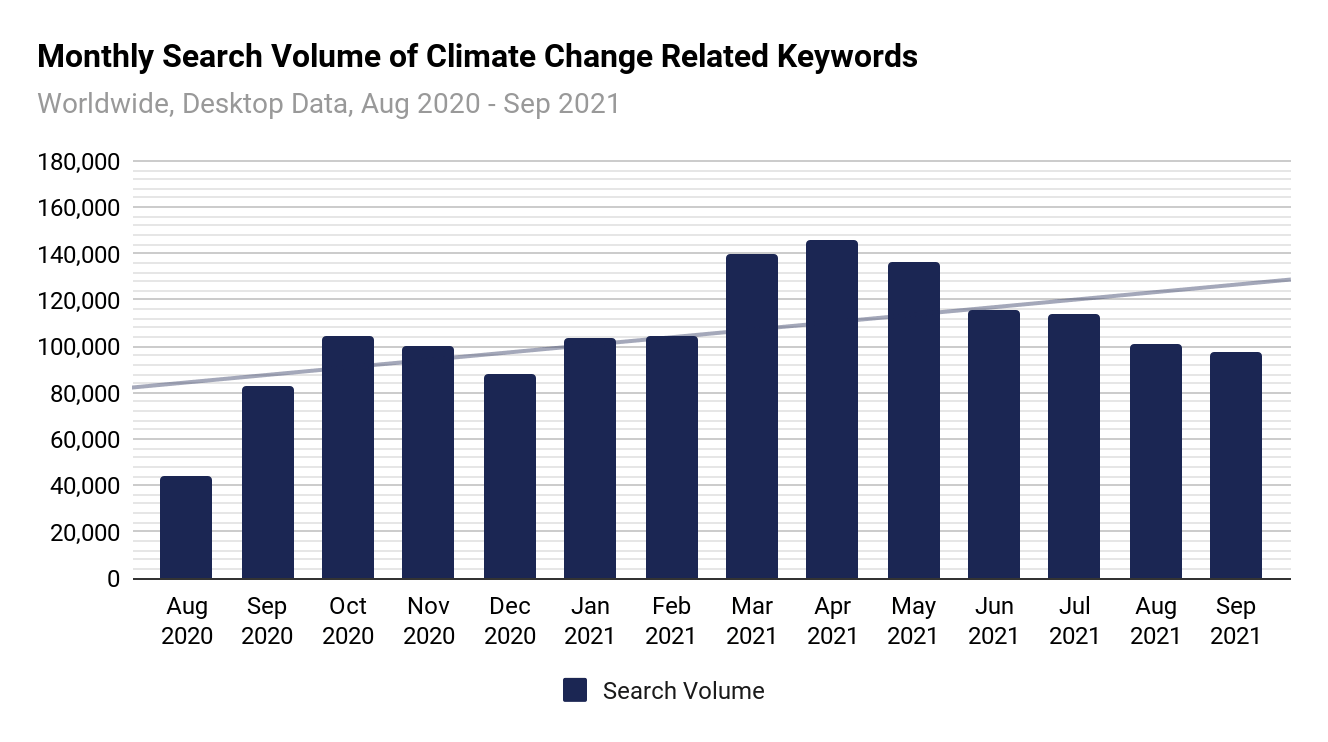
Similarweb Digital Marketing Intelligence shows monthly search volume has risen this year for Climate Change related keywords
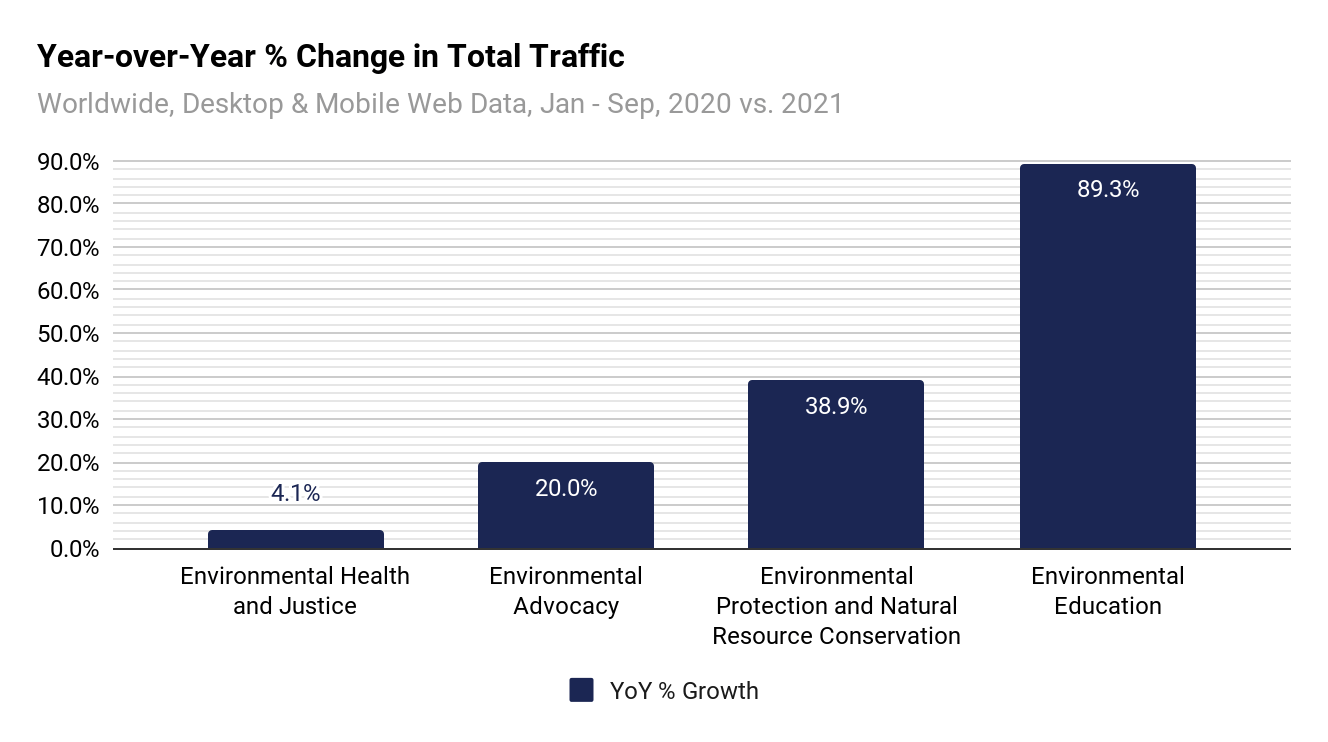
Similarweb Digital Research Intelligence shows environmental education websites have received the biggest uplift in traffic this year.
We spoke with Charlie Clissitt, Editor of the UK’s leading Eco Comparison site, The Eco Experts:
“We have seen a 284% year-on-year increase in traffic to our blog, which of course focuses on all things climate-related. Still, even though people know issues like global warming are very real and very bad, they don’t always know the best ways to tackle it themselves. As a climate-conscious homeowner, how do you create a zero-carbon home, for example? Fortunately, the internet has turned information into running water; people just need to turn the tap to go online and fill their cup.”
Search terms: bees, Bitcoin, and the point of no return
Out of the top ten environmental-related educational sites, Yale’s School of Environment site skyrocketed +102.6% (YoY) when comparing January – September in 2020 and 2021. And people weren’t just searching for “what is climate change”. Searches demonstrated a complex, wide-ranging, and in one case, existential desire to understand it.
Most visitors found environment-review.yale.edu by searching the following terms:
How ‘hot’ is climate change in digital trends?
Context is everything. While climate change searches are increasing, how does it stack up against other topics? Using Google Trends data for the past seven days (as of Oct. 29), the stats speak for themselves:
Climate change vs. Pepsi: Climate change wins
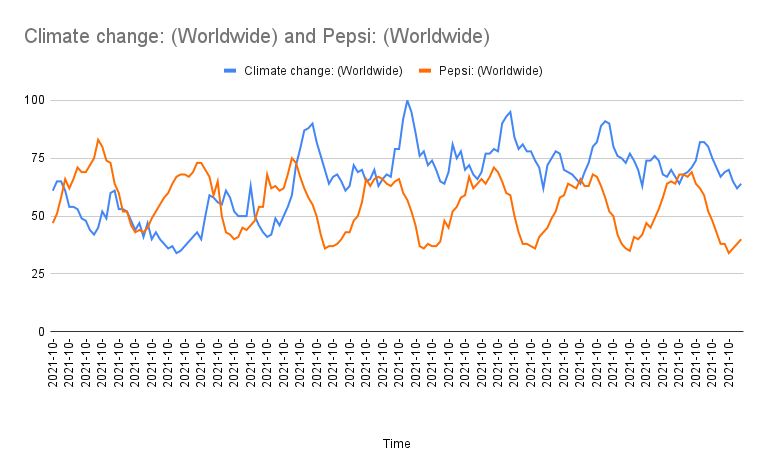
COP26 vs. Trump: Climate change wins
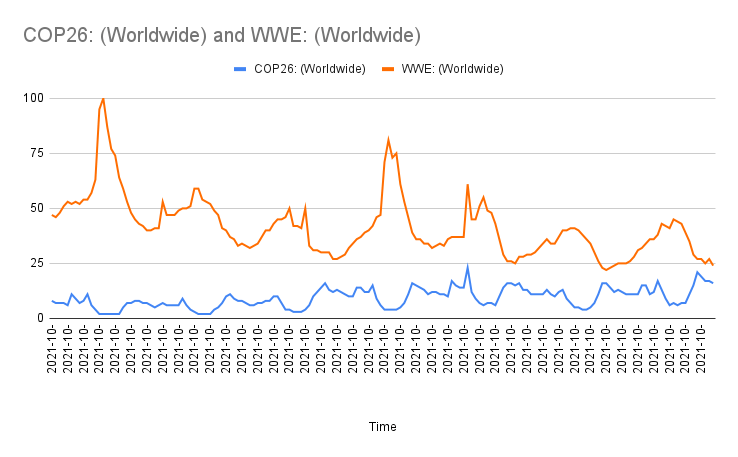
COP26 vs. Truth Social: COP26 win
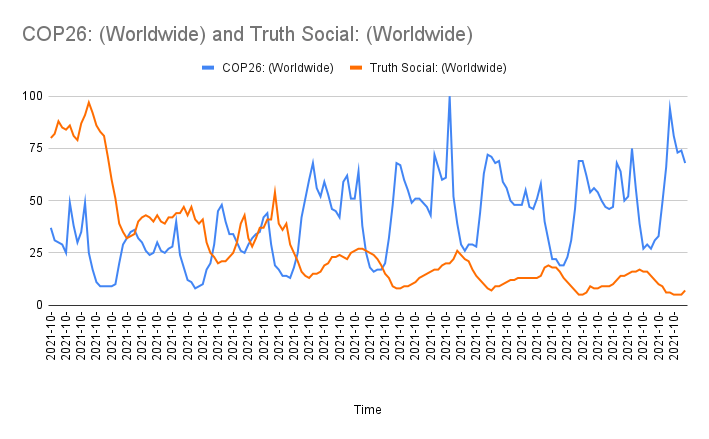
Climate Change vs. Trump: Trump wins
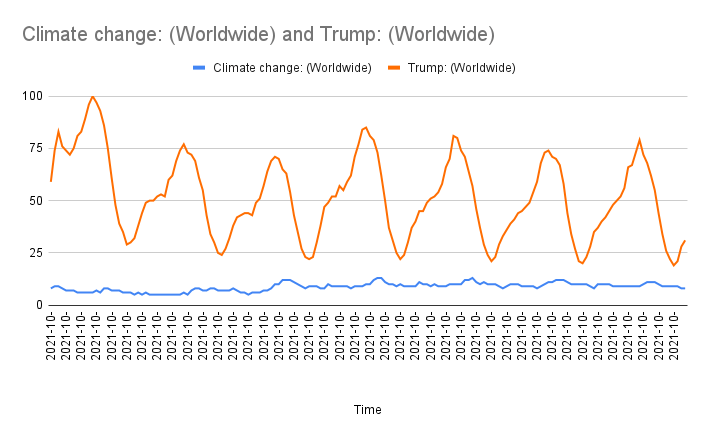
Media coverage of COP26: U.K. vs. U.S.
Searches for “climate change news” have been climbing every month. And, as you’d expect, searches for COP26 have gone through the roof. But where are people getting their info? The official COP26 site and UN CCC site take the bulk of traffic, but what are our go-to news outlets saying? We analyzed Google search results for COP26 across four top online publications in both the U.K. and U.S. to see. Data was collected Sunday, October 24 (one week prior to the conference start date).
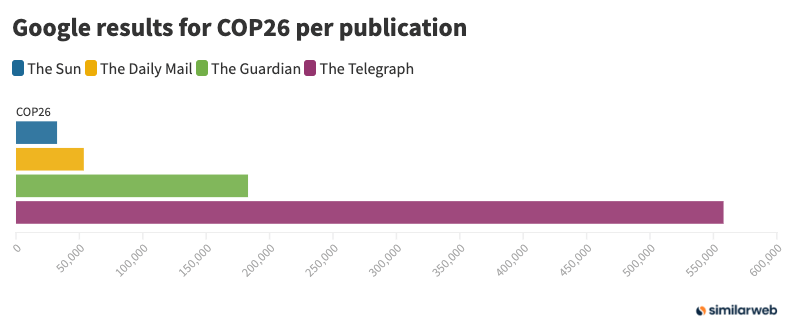
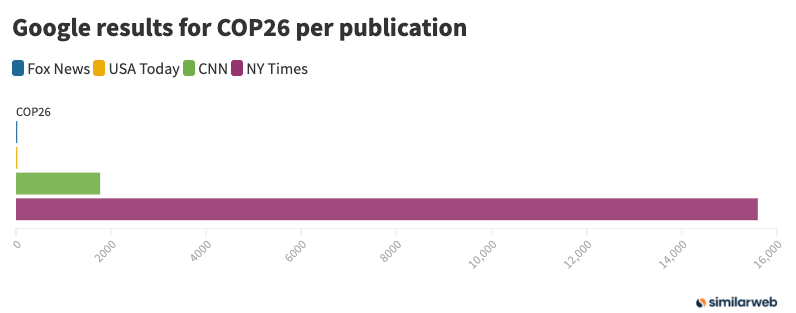
Solar product searches are heating up
Lastly, we live in a capitalist world, so no blog post is complete without a look at what we’re buying. And yes, we’re going greener. Similarweb Shopper Intelligence shows us Amazon.com saw a 36.6% increase in “solar” related product searches from the same time period last year. And Charlie Clissitt told us that when looking at the solar category of The Eco Experts, there’s been a 31% year-on-year increase in traffic.
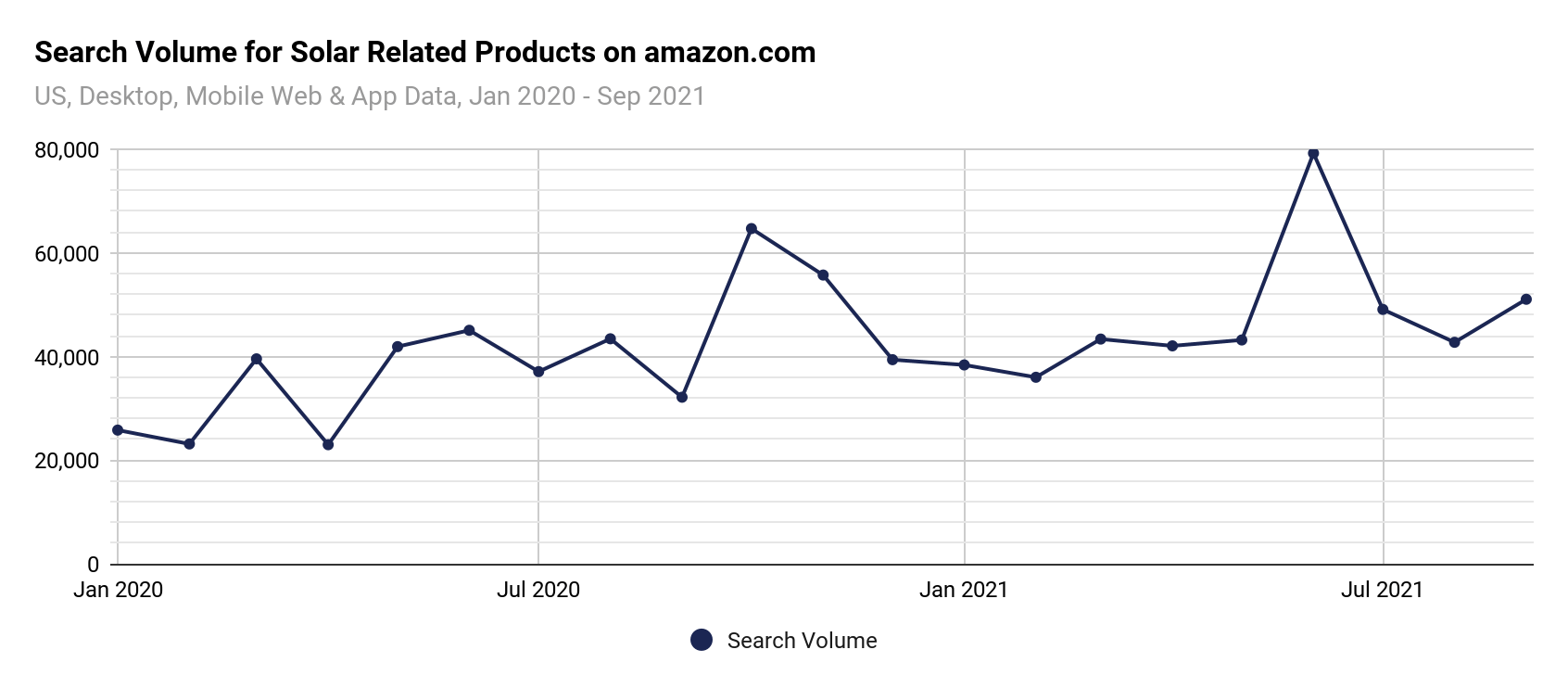
Can the internet save us from climate change?
Our data paints a clear picture: climate change is growing in our global consciousness: educational and consumer trends both point towards a greener mindset. The go-green-do-good attitude is spilling over into other areas as well – according to Charity Navigator, traffic is up 18.9% this year across 36 top environmental nonprofits.
At Similarweb, we believe in data. Our Data for Good series shines a light on world issues and shows how online search habits, trends, and behavior play a bigger part than you may think. So, still want to break up with the internet?
To learn more about the data behind this article and what Similarweb has to offer, visit https://www.similarweb.com/.







Sign up to receive our stories in your inbox.
Data is changing the speed of business. Investors, Corporations, and Governments are buying new, differentiated data to gain visibility make better decisions. Don't fall behind. Let us help.




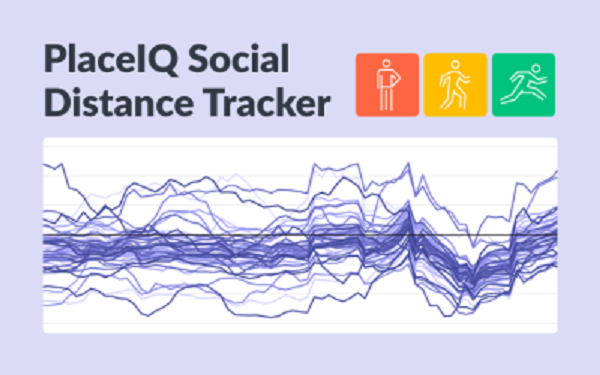
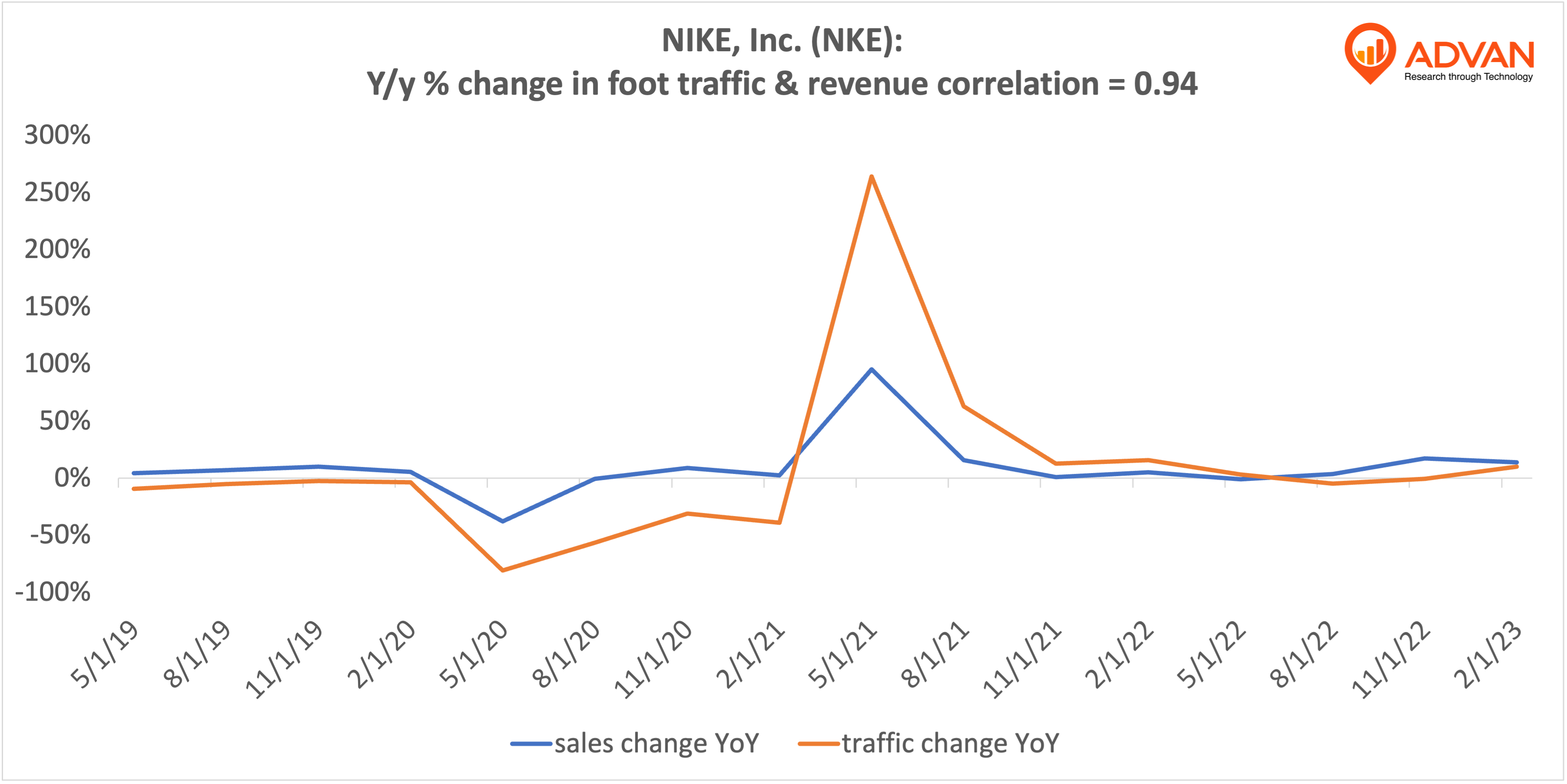







Sign up to receive our stories in your inbox.
Data is changing the speed of business. Investors, Corporations, and Governments are buying new, differentiated data to gain visibility make better decisions. Don't fall behind. Let us help.





